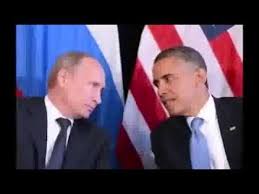(FP) Two weeks ago, President Barack Obama expressed rare praise for President Vladimir Putin, thanking the Russian leader for his role in securing the Iran nuclear deal and expressing hope that cooperation could spill into other contentious areas like ending the conflict in Syria. “We would not have achieved this agreement had it not been for Russia’s willingness to stick with us,” Obama said in an interview this month with New York Timescolumnist Thomas Friedman.
But the diplomatic camaraderie that helped advance talks over Iran’s nuclear program has not translated into cooperation on a range of other key Western priorities, from the Balkans to Syria, where the United States and its Arab and European allies have strained for years to convince Russia to put pressure on the Syrian government to yield power to a transitional government. The diplomatic friction between the United States and Russia was plainly on display at the U.N. Security Council on Wednesday in a dispute over Ukraine. […]
Andrew Kuchins, director of the Russia and Eurasia Program at the Center for Strategic and International Studies, said that though the Ukraine crisis has “sucked all of the air from the U.S.-Russian relationship,” Washington and Moscow have found areas where their interests have aligned and where they have worked productively together to solve problems. He cited the Russian and U.S. negotiations in 2014 that led to the elimination of Syria’s declared chemical weapons program. […]
Read More © Foreign Policy










